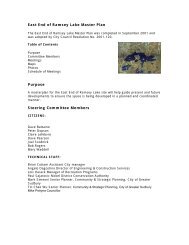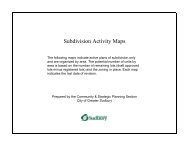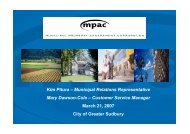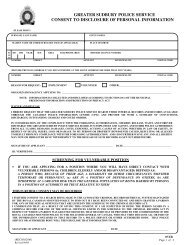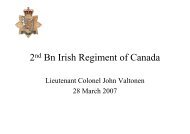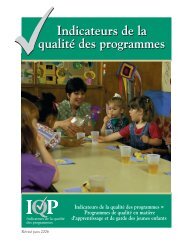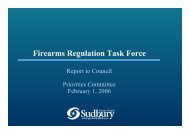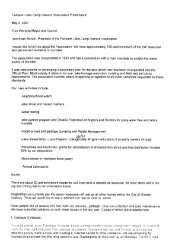Program Quality Indicators = Quality Early Learning and Quality ...
Program Quality Indicators = Quality Early Learning and Quality ...
Program Quality Indicators = Quality Early Learning and Quality ...
You also want an ePaper? Increase the reach of your titles
YUMPU automatically turns print PDFs into web optimized ePapers that Google loves.
7. Present concerns about the professional behaviour of a colleague, first to that person<br />
<strong>and</strong> attempt to solve the matter collegially.<br />
8. Participate in the development <strong>and</strong> implementation of teaching methods that will<br />
effectively address the stated educational principles <strong>and</strong> goals of programs.<br />
9. Be a willing participant in the training process by articulating concern constructively <strong>and</strong><br />
by providing opportunities for students to practise professional skills under<br />
knowledgeable supervision.<br />
Obligations to Leaders<br />
Recognition that <strong>Early</strong> Childhood Educators in leadership positions can substantially influence the<br />
quality of programs for young children, a code of ethics must specify additional guidelines for the<br />
professional competence <strong>and</strong> special duties of supervisors, consultants, administrators <strong>and</strong> training<br />
personnel. <strong>Early</strong> Childhood Educators in leadership positions are accountable for the programs <strong>and</strong><br />
service provided. An <strong>Early</strong> Childhood Educator working in a leadership role is obliged to:<br />
1. Develop <strong>and</strong> state clearly a philosophy toward the care <strong>and</strong> education of children <strong>and</strong><br />
adhere to practices that are consistent with the goals inherent in this philosophical<br />
approach.<br />
2. Provide a written job description <strong>and</strong> personnel policies that define program st<strong>and</strong>ards.<br />
3. Conduct each staff <strong>and</strong> student evaluation impartially, basing it on first-h<strong>and</strong><br />
observations of performance in accordance with the duties <strong>and</strong> responsibilities<br />
contained in the job description or student placement guidelines. Employees who do<br />
not meet program st<strong>and</strong>ards shall be informed of the areas of concern <strong>and</strong> when<br />
possible, assisted in improving their performance.<br />
4. Support professional development <strong>and</strong> advancement of personnel.<br />
5. Act promptly <strong>and</strong> decisively in situations where the well being of children is<br />
compromised, ensuring that the best interests of children supersede all other<br />
considerations.<br />
6. Inform an employee in advance of the reasons for dismissal, referring only to evidence<br />
of unsatisfactory performance which is accurate, documented, current <strong>and</strong> available to<br />
the employee.<br />
7. Exercise utmost discretion when providing information or recommendations about<br />
children, families or personnel when such information is solicited by authorized persons.<br />
Obtain consent from the parties concerned whenever practical, especially when such<br />
information may be prejudicial.<br />
8. Make use of community <strong>and</strong> professional services when appropriate <strong>and</strong> provide<br />
parents with information about resources that will support <strong>and</strong> strengthen family life.<br />
9. Hire, promote <strong>and</strong> provide training in accordance with Human Rights Legislation.<br />
--



